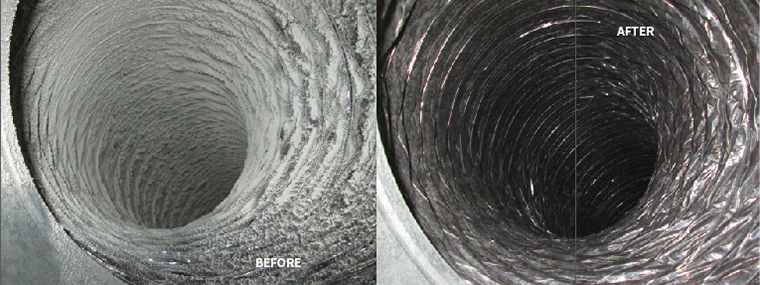
The Musty Menace
Moldy Air Conditioning Systems and Their Health Implications
By Michael Tebor, ASCS, CIE, CMR—State Licensed MRSA1924 / Published March 2024

As the sweltering heat of summer rapidly approaches, air conditioning systems become a vital refuge from the oppressive temperatures. However, unwelcome odors emanating from these systems can sour the relief they provide. Musty odors, often indicative of mold and mildew growth within air conditioning units, not only compromise indoor air quality but also pose potential health hazards to occupants. In this article we will explore the causes of musty odors in air conditioning systems, their health implications, and strategies to mitigate these issues.
Understanding Musty Odors in Air Conditioning Systems
Musty odors in air conditioning systems are typically caused by the growth of mold and mildew. These fungi thrive in dark, damp environments, making the interior of an air conditioning unit an ideal breeding ground. Moisture from condensation, accumulated dust, and organic matter within the system provide the necessary nutrients for mold and mildew to flourish. As air passes through the contaminated unit, it carries the musty odors into the occupied spaces, affecting indoor air quality and potentially causing discomfort and health issues for occupants.
Health Implications of Moldy Air Conditioning Systems
The presence of mold and mildew in air conditioning systems can have a range of adverse health effects. Individuals with allergies, asthma, or other respiratory conditions are particularly susceptible to the airborne spores released by mold and mildew. Prolonged exposure to these spores can exacerbate existing respiratory issues and lead to the development of new ones. Common symptoms associated with exposure to mold and mildew include coughing, wheezing, nasal congestion, throat irritation, and exacerbation of asthma symptoms. In more severe cases individuals may experience respiratory infections and other systemic health effects.
Furthermore, mold and mildew produce mycotoxins, which are toxic substances that can be released into the air. Inhalation or direct contact with mycotoxins can result in a variety of health problems, including headaches, dizziness, fatigue, and skin irritation. Long-term exposure to mycotoxins has been linked to neurological and immunological effects, although further research is needed to fully understand the extent of these implications.
Preventing and addressing musty odors resulting from moldy air conditioning systems are essential for maintaining a healthy indoor environment. Here are a couple of strategies to mitigate these issues:
Clean the HVAC Systems—Inspect and clean the air conditioning system and associated ductwork. Scheduling annual inspections and maintenance of air conditioning systems will help identify and address potential mold growth before it becomes a pervasive issue. Cleaning, replacing, or upgrading your air filters; ensuring proper drainage of condensate; and removing ductwork leakage can help minimize the conditions conducive to mold and mildew development.
Control Humidity—Managing indoor humidity levels is crucial for preventing mold growth. Using dehumidifiers and air curtains in areas prone to moisture accumulation, such as lobbies and common areas, can help reduce the likelihood of mold formation. Additionally, ensuring proper ventilation in bathrooms, kitchens, and laundry areas can help expel excess moisture from indoors. Inspecting and adjusting the outdoor air/fresh air intakes for proper operation can be crucial to maintaining proper indoor relative humidity levels.
Michael Tebor
Michael Tebor is vice president of Air Duct Aseptics, an NADCA-certified air duct cleaning company, with over 30 years’ experience specializing in providing certified duct cleaning and indoor air-quality solutions to Florida’s community associations. Mike is a certified air systems cleaning specialist (ASCS), a certified indoor environmentalist (CIE), and a certified mold remediator (CMR). He is also a state-licensed mold assessor. Mike notes our company’s skill set, experience, and multi-disciplinary approach to problem solving set us apart in our industry. Michael can be reached at 888-707-7763 and www.ADAflorida.com.





